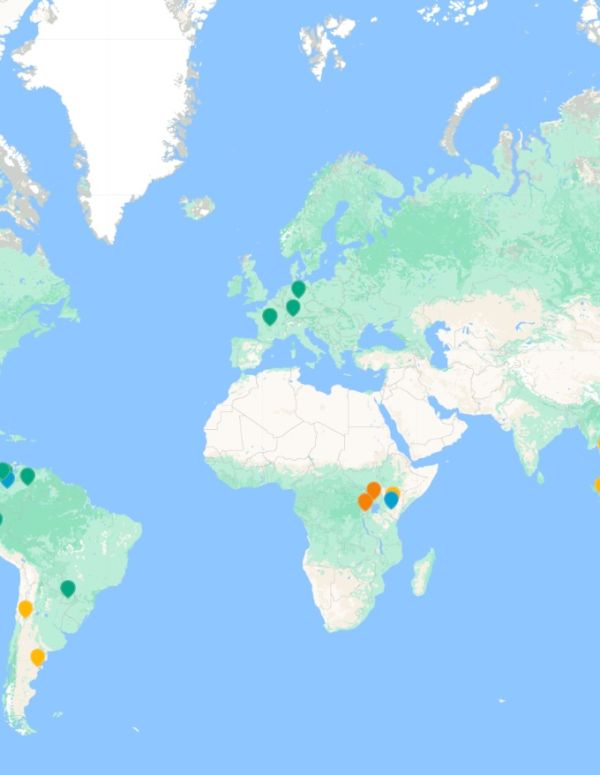Contactez-nous
A propos
Voir tout


- A propos A propos
- Notre mission
- Equipe dirigeante
- Nos bureaux
- Notre engagement en matière d’intégrité

Notre engagement en matière d'intégrité
Débutez votre transition climatique
En savoir plus
- A propos Solutions
- Conseil Climat
- Certificats environnementaux
- Financer la décarbonation à grande échelle

Notre engagement en matière d'intégrité
Débutez votre transition climatique
En savoir plus
- A propos Notre impact
- Nos clients
- Découvrez nos projets

Notre engagement en matière d'intégrité
Débutez votre transition climatique
En savoir plus

Notre engagement en matière d'intégrité
Débutez votre transition climatique
En savoir plus
Solutions
Voir tout


- Solutions Conseil Climat
- Maîtrisez la réglementation environnementale : mesurez votre impact climatique, rapportez et évaluez
- Fixez des objectifs fondés sur la science et préparez durablement votre transition vers le net zéro
- Décarbonisation de la chaîne d'approvisionnement : Engager les parties prenantes et réduire les émis

Investissez dans l’action climatique
South Pole believes that a Net Zero target is a part of every organisation's Climate Journey.
Find out more
- Solutions Certificats environnementaux
- Comprenez les marchés en constante évolution, planifiez un portefeuille prêt pour l'avenir.
- Choisissez des crédits carbone et des certificats environnementaux prêts à l'achat
- Sécurisez un flux à long terme de crédits carbone

Investissez dans l’action climatique
South Pole believes that a Net Zero target is a part of every organisation's Climate Journey.
Find out more
- Solutions Financer la décarbonation à grande échelle
- Finance decarbonisation at scale
- Découvrez nos projets

Investissez dans l’action climatique
South Pole believes that a Net Zero target is a part of every organisation's Climate Journey.
Find out more

Investissez dans l’action climatique
South Pole believes that a Net Zero target is a part of every organisation's Climate Journey.
Find out more
Notre impact
Voir tout


- Notre impact Nos clients
- Voir tout

Nestlé
Débutez votre transition climatique
En savoir plus
- Notre impact Secteurs
- Aviation et compagnies aériennes
- Énergie/Services publics
- Industrie de la mode
- Secteur financier
- Nourriture et Boissons
- Immobilier
- Voir tout

Nestlé
Débutez votre transition climatique
En savoir plus

Nestlé
Débutez votre transition climatique
En savoir plus
Evénements et Actualités
Voir tout



- Evénements et Actualités Presse
- Nos dernières actualités
- Communiqués de presse

Rapport Net Zéro 2024 - South Pole

Votre rendez-vous avec l’actualité climatique
Débutez votre transition climatique
En savoir plus
- Evénements et Actualités Événements
- Evénements à venir
- Evénements passés

Rapport Net Zéro 2024 - South Pole

Votre rendez-vous avec l’actualité climatique
Débutez votre transition climatique
En savoir plus
- Evénements et Actualités Blog South Pole
- Pratiques d’agriculture régénératrice en France: retour d'expérience d'agriculteurs
- Intégrité, innovation et impact : les principes d’une action climatique crédible
- Reporting CSRD : bien se préparer à l'évaluation de la double matérialité
- The evolving definition of integrity in the carbon market
- Voir tout

Rapport Net Zéro 2024 - South Pole

Votre rendez-vous avec l’actualité climatique
Débutez votre transition climatique
En savoir plus
- Evénements et Actualités Publications
- Tous les téléchargements
- Le petit guide de la CSRD (Corporate Sustainability Reporting Directive)
- Voir tout

Rapport Net Zéro 2024 - South Pole

Votre rendez-vous avec l’actualité climatique
Débutez votre transition climatique
En savoir plus

Rapport Net Zéro 2024 - South Pole

Votre rendez-vous avec l’actualité climatique
Débutez votre transition climatique
En savoir plus
A propos
Solutions
- Maîtrisez la réglementation environnementale : mesurez votre impact climatique, rapportez et évaluez
- Fixez des objectifs fondés sur la science et préparez durablement votre transition vers le net zéro
- Décarbonisation de la chaîne d'approvisionnement : Engager les parties prenantes et réduire les émis
Notre impact
Evénements et Actualités
- Pratiques d’agriculture régénératrice en France: retour d'expérience d'agriculteurs
- Intégrité, innovation et impact : les principes d’une action climatique crédible
- Reporting CSRD : bien se préparer à l'évaluation de la double matérialité
- The evolving definition of integrity in the carbon market
- Voir tout

Notre engagement en matière d'intégrité

Investissez dans l’action climatique

Nestlé

Rapport Net Zéro 2024 - South Pole

Votre rendez-vous avec l’actualité climatique
South Pole believes that a Net Zero target is a part of every organisation's Climate Journey.
Find out more






